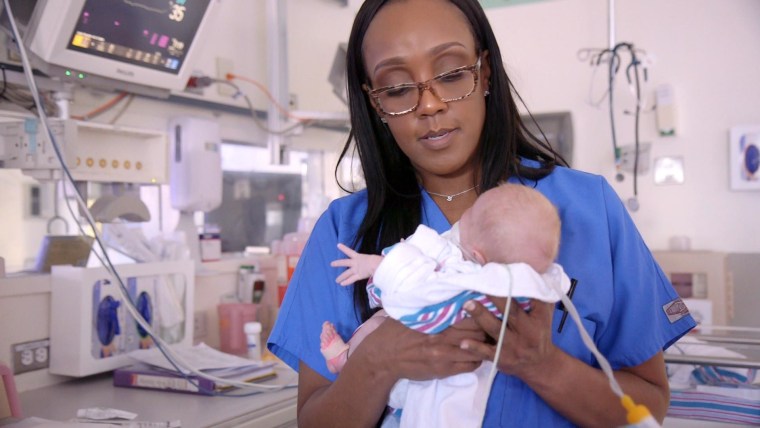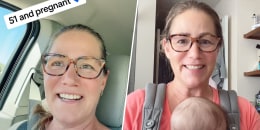All Danielle Fishel wanted was a healthy baby. So, the former "Boy Meets World" actress was devastated when her son Adler Lawrence was born four weeks early with a condition called chylothorax.
It’s a relatively rare disorder in which lymphatic fluid leaks into the space between the lungs and the chest wall, according to the Children’s Hospital of Philadelphia website.
Adler was 12 days old when an ultrasound revealed that the fluid in his lungs had tripled. Initially, doctors had thought it would go down.
The little boy was rushed in an ambulance from Providence Tarzana Medical Center, where he was born, to Children’s Hospital Los Angeles.
“That was obviously devastating for us. It was traumatizing,” Fishel, 38, revealed in this week’s issue of PEOPLE.
Dr. Michael Schreiber, a neonatologist and professor of pediatrics at the University of Chicago Medicine Comer Children’s Hospital, says chylothorax usually results in trouble breathing. It affects approximately one in 10,000 babies, Shreiber told TODAY Parents.
Fishel stopped nursing after Adler was diagnosed.
“Unfortunately, my breast milk was creating fluid in his lungs, and we had to take him off of breast milk and put him on a specially formulated formula that doesn’t use the lymphatic system," she said.
Never miss a parenting story with the TODAY Parenting newsletter! Sign up here.
Though Adler is now 10 weeks old and thriving, Fishel and her husband, Jensen Karp, are still rattled from his health scare.
Karp recalled putting on a brave face in the NICU, despite feeling like “a mess” while posing for photos with Adler.
“As hard as it was, I pretended I wasn’t crying and put a thumbs-up in the air,” he said. But Karp, an executive producer on "Drop the Mic," knows he and Fishel are lucky. Adler's future looks bright.
“We saw the other things that children and parents are facing, we put it in perspective and we were just so happy to have Adler with us,” Karp, 39, said.
Schreiber agrees. “Babies can die from chylothorax. It can require chest tubes, medications and surgical intervention,” the doctor told TODAY Parents. “In the big picture, they were quite fortunate.”











